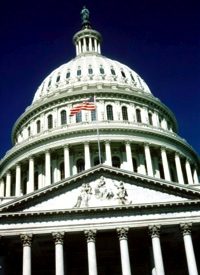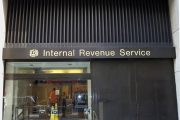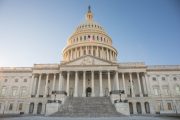
In their haste to leave Washington and attempt to rescue whatever might be left of their political careers, politicians put off until a lame-duck session any serious discussion of last-minute agenda items. And many of those aren’t expected to see the light of day at the post-election session set to being November 15, according to The Hill. Alexander Bolton wrote that “Democrats will be hard-pressed to pass even a small part of their lame-duck agenda.”
And Norman Ornstein of The New Republic magazine pooh-poohs the idea that any of these “last minute agenda items” will be considered. In his opinion, It is remotely possible that an energy bill could limp across the lame-duck finish line, but the odds of it including any serious carbon cap are slim to none. The same goes for a tough version of card-check or any grandiose big government spending plans. The START treaty … remains captive to the … right.
John Fund disagrees. As he wrote in The Wall Street Journal, There have been signs in recent weeks that party leaders are planning an ambitious, lame-duck session to muscle through bills in December [that] they dont want to defend before November. Retiring or defeated members of Congress would then be able to vote for sweeping legislation without any fear of voter retaliation. And many liberal legislators have plenty to muscle through. Senator Jay Rockefeller (D-W. Va.) said, Ive got lots of things I want to do, including a bill on the EPA and mine safety. The defense authorization bill which contains repeal of Don’t Ask, Don’t Tell is being pushed aggressively. Senator Dick Durbin (D-Ill.) has promised his support for the DREAM Act. Senator Joe Lieberman (Independent Democrat, Conn.) wants his cybersecurity bill passed, while Senator John Kerry (D-Mass.) is pushing for ratification of the START treaty with Russia. Senator Charles Shumer (D-N.Y.) is planning to offer a bill to address Chinese currency manipulation, and Senator Tom Harkin (D-Iowa) is promoting food-safety regulation. The inevitable Speaker Nancy Pelosi (D-Calif.) wants a vote on her child-nutrition legislation. And of course, the elephant in the living room extension of Bush-era tax cuts is on everyones to-do list.
The biggest threat, however, is none of these. According to Marc Thiessen, in the Washington Post, the most likely scenario since Congress has not yet approved any regular appropriations bills is that a lame-duck session would be used to pass a massive, earmark-laden omnibus spending bill. And all it takes to open the floodgates is one Republican defection. Thiessen is referring to the filibuster rules in the Senate whereby one Senator, or a series of Senators, is allowed to speak for as long as they wish, on any topic they wish, unless cloture to the filibuster is invoked by 60 senators under Senate Rule XXII. Put another way, 41 Senators can keep a filibuster alive interminably, thus stalling a lame-duck session.
What makes this possibility interesting is that in Illinois, Rep. Mark Kirk (R-Ill.), a moderate (“Freedom Index” rating of 48 percent) Republican is running for not only the Senate seat currently occupied by Senator Dick Durbin, but also the seat vacated when Roland Burris resigned under an ethics cloud. As Kirk remarked, Its actually legal in Illinois to vote for Senate twice now! Thiessen explains:
If Kirk wins that special election, he would ask to be seated immediately thus becoming the 42nd Republican senator. And that, Kirk told me, is a total game-changer on the numbers in the Senate.
What is his view of a lame duck? Kirk says, The only legitimate thing for the Congress to do is to pass a short-term continuing resolution to keep the [governments] doors open and let the voice of the American people as communicated through their new representatives and senators speak in January.
Thus, Kirk would oppose passage of any major legislation before the new Congress is seated. There is something unseemly, he said, about defeated congressmen and senators exercising any significant power [during a lame-duck session].
While discussion and opinions continue to whirl about the possible damage a lame-duck session could inflict on the increasingly restive and unhappy American taxpayer and voter, one thinks of Mark Twain’s pithy reminder about such dangers: “No man’s life, liberty, or property is safe while the legislature is in session.” Lame duck or not.



